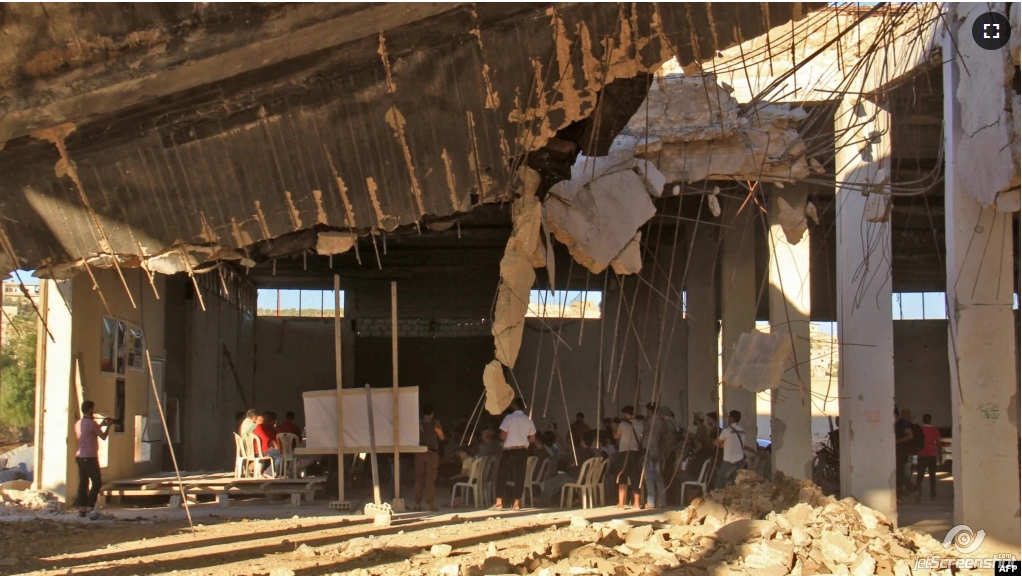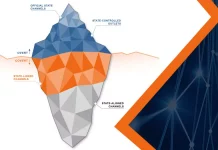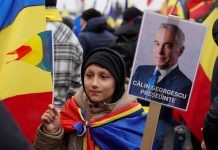By Polygraph
SANA
Syrian state news agency
“… the Russian Defense Ministry announced that Jabhat al-Nusra terrorists carried out 35 attacks in the de-escalation zone in Idlib … terrorist organizations … are preparing to stage a new false flag chemical attack with the aim of accusing the Syrian Arab Army.”
Source: SANA, February 18, 2021
LIKELY FALSE
On February 18, Syria’s SANA state news agency reported on recent fighting around the northern enclave of Idlib, which is controlled by the Syrian opposition and backed by the Turkish military.
SANA wrote: “Last Monday, the Russian Defense Ministry announced that Jabhat al-Nusra terrorists carried out 35 attacks in the de-escalation zone in Idlib, while a day before that, the Ministry revealed that terrorist organizations, which spread in Idlib, are preparing to stage a new false flag chemical attack with the aim of accusing the Syrian Arab Army.”
That report of a planned attack is likely false, another in a series of similar claims that deflect attention from Syria’s own alleged use of chemical weapons during its long-running civil war.

Russia’s Defense Ministry has repeatedly claimed intelligence showing that rebels, or volunteers with Syrian Civil Defense (better known as the White Helmets), were planning false flag chemical attacks.
Both Russia and the Assad regime also have asserted that actual high- profile chemical attacks in East Ghouta (2013), Khan Sheikhoun (2017) and Douma (2018), may have been carried out by the rebels, or were entirely staged, using fake corpses and actors. The purported motive was to provoke foreign military intervention against the Assad regime, particularly by the U.S., U.K. and France.
If so, it didn’t work. Western countries declined to intervene militarily following the East Ghouta sarin gas attack in 2013, which killed more than 1,000 people. Instead, then-U.S. President Barack Obama endorsed an agreement brokered by Russian President Vladimir Putin to declare and destroy Syria’s chemical weapons program and stockpile. The Khan Sheikhoun and Douma chemical attacks were both followed by brief, limited Western air strikes.
Nonetheless, Russian state media outlets have persistently claimed that rebels “staged” chemical attacks and blamed Assad’s regime.
For example, the TASS news agency published a story on September 23, 2020, headlined: “Militants stage chemical attack in Idlib to accuse Syrian government,” implying that the “staged” attack had already happened.
Yet the story itself indicated the attack had not been carried out. “Militants have been scheming a provocation with toxic agents, which have already been shipped into Idlib to make a film in order to pin the blame on the Syrian government for the use of chemical weapons against civilians, Alexander Grinkevich, the chief of the Russian Center for Reconciliation of Opposing Sides in Syria, said on Wednesday,” TASS wrote.
This TASS story, which also cited Syria’s news agency, claimed the rebels possess chemical weapons and that civilians had been or could have been killed in the alleged “false flag” attacks. Stories claiming “staged attacks” can be found as far back as 2018 and typically cite Russia’s Defense Ministry and/or Syria’s SANA news agency as sources.
Syrian and Russian state media have not provided evidence of how such attacks were “staged.” They have frequently tried to use misleading photos as “proof.”
For example, still photos from the production of a short film on Syria were passed off as evidence showing White Helmets preparing to film a fake chemical attack. In another case, scenes from the making of a Syrian state-backed film called “Revolution Man” were offered as proof that rescue organizations were staging chemical attacks.
(“Revolution Man” is about a rescue volunteer who stages such an attack.)
Since Syria’s civil war started in 2011, there have been more than 300 credible reports of chemical weapons use in Syria, nearly all attributed to the government. (Islamic State is believed to have used captured chemical weapons against its Kurdish opponents.)
Syria not only had a chemical weapons program prior to 2013, but also the means to deliver chemical agents. In the Douma and Khan Sheikhoun attacks, the chemical weapons were deployed by aircraft, which no rebel force in Syria possesses.
By Polygraph





